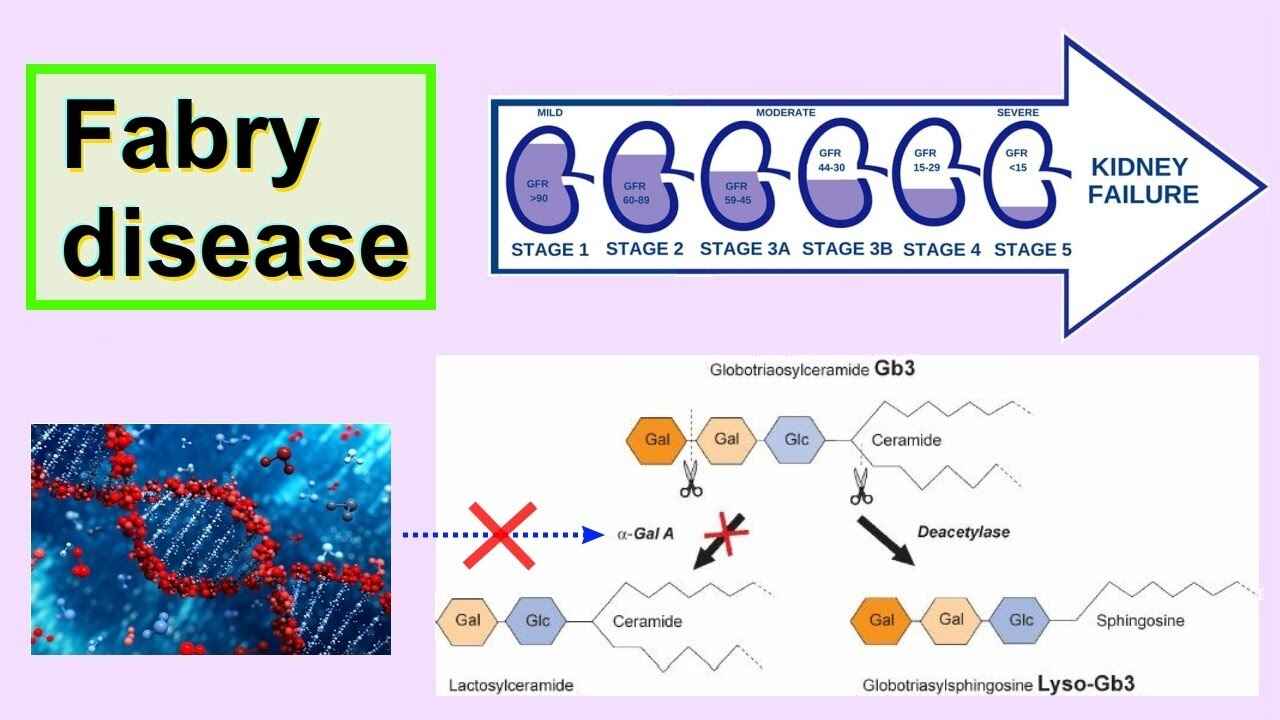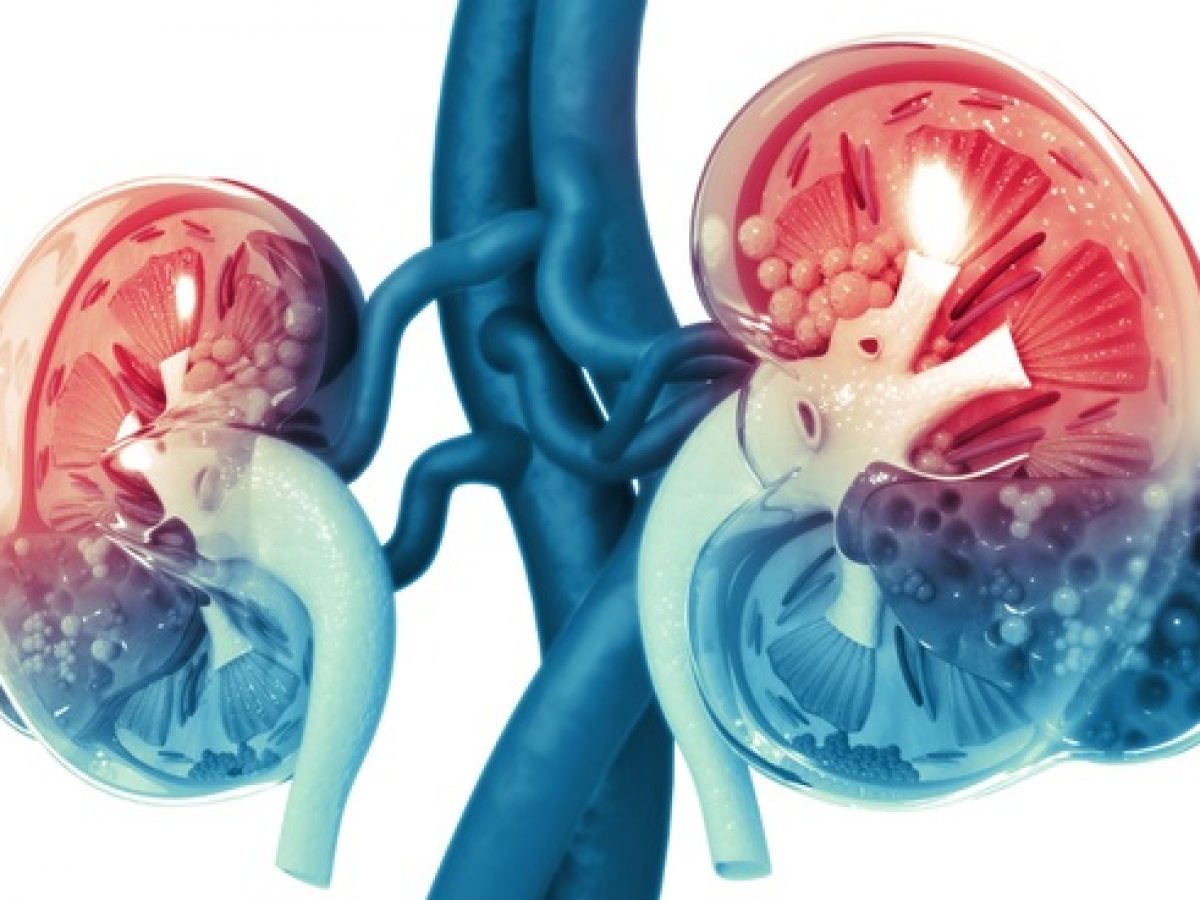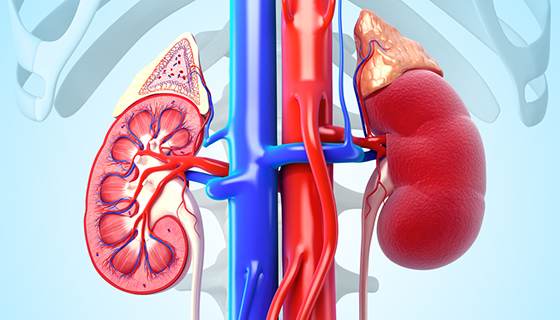
With constant changes in our lifestyle and dietary habits, we are opening the gates for diseases to enter our bodies. Out of all, kidney diseases have taken a surprising rage within a short span. These diseases have become so common that now it can be found in infants and even in the unborn child. But the kidney problem that occurs during Fabry disease is because of the accumulated Globotriaosylceramide (GL3) in cells and tissues of kidneys. This accumulation can often result in kidney failure. Fabry disease is a disease that runs in families. It is a type of disease that is inherited by the X chromosome and is transferred to the child by the biological parents only. The symptoms include eye problems, kidney failure, and skin related problems. The popular treatment for this specific disease is enzyme replacement therapy. Would you like to see your little kid undergoing artificial treatments like dialysis and kidney transplant? Read on to understand the epidemiology of Fabry disease and how Ayurveda can help you with the recovery.
Kidneys are solely responsible for filtering the wastes and toxins from the body and the buildup caused by this disease will only be increasing the workload of kidneys. This increased workload will end up failing the kidneys. Or in simpler words, you may suffer from the End-Stage Renal Disease (ESRD).
Fabry disease is a type of disease that is transferred by the biological parents. Mothers transfer mutated or defected gene naming X chromosomes to their sons and daughters but fathers can transfer to their daughters only. It is medically proven that there are two types of chromosomes; the X chromosome and the Y chromosome. The transfer of both types of chromosomes decides the gender of the baby. Fabry disease is a type of disease that only affects one type of chromosome and that is the X chromosome. It occurs when the human body is lacking behind in enzymes that resist the glycolipid, a type of fat. Now let us begin with its types, symptoms, causes, and treatments.
Fabry Disease is related to a group of 50 different defected or mutated genes. Each gene is determined as an inborn error of metabolism that results in the deficiency of lysosomal enzyme/s. Because it is a rare disease, the frequency of Fabry disease is difficult to understand. 
Following are the other popular names of Fabry Disease:
Two types of Fabry diseases have been observed till now:
This disease can be caused either of the two reasons:
Fabry diseases run in families. It can be transferred by either of the biological parents or their biological ancestors.
The GLA gene controls the production of a particular enzyme called alpha-galactosidase A. This enzyme is responsible for breaking down a molecule in the cells known as globotriaosylceramide (GL-3). When the GLA gene damages; the breakdown GL-3 builds up in the body only. This buildup then damages the blood vessels that result in disrupting the functioning of:
Fabry disease usually includes skin growth, eye problems, and kidney diseases. But following are the supporting symptoms that can help in understanding the epidemiology:
The build of glycolipid or GL-3 in the human body can affect the functioning severely of the organs:
This disease can be diagnosed by performing the following tests:
This is a specific test that is done on mothers during pregnancy. It is done to know whether the fetus in the embryo is affected by any birth defect or not. If the fetus or an unborn child is affected by Fabry disease then it will show the results depicting the presence in results.
As the name suggests, this test is done to determine the presence of defects and diseases that a newborn baby is affected with or not.
This is a type of test, where the buildup fatty acids along with GL-3 will be detected. Be honest with whatever the doctor asks you to identify the type of disease. Following are the basic questions that your Nephrologist or a doctor would ask:
It is a rare disease that affects one in forty thousand male with type one or classic Fabry disease. And the graph slightly changes with type 2 Fabry disease; it is common in one out of fifteen hundred to four thousand people. 
The treatment of Fabry disease is usually done with the enzymes replacement therapy and kidney transplants. But these are the unnatural ways of treating the diseases. If you want an authentic treatment that can help you in repairing the damaged cells, tissues, and defected genes then you should opt for Ayurvedic treatment only. Ayurvedic treatment is the only method that can help in bringing the lives of the defected organs with natural methods only. This type of method is inclusive of the treatment with ayurvedic herbs, shrubs, essential oils, cooking oils, fresh fruits, and vegetables. Following are the basic guidelines that are defined in the books of Ayurveda for the benefit of a human being:
If you wish to get one such treatment then do consult our experts here. Ayurvedic Medicine for Fabry Kidney Disease and Ayurvedic Treatment for Fabry Kidney Disease

Certificate no- AH-2023-0186
JAN 05,2023-JAN 04,2026
"Ayurveda is not just a system of medicine; it's a way of life. Connect with us to embrace a lifestyle that nurtures your body, mind, and soul."
Book Consultation Now